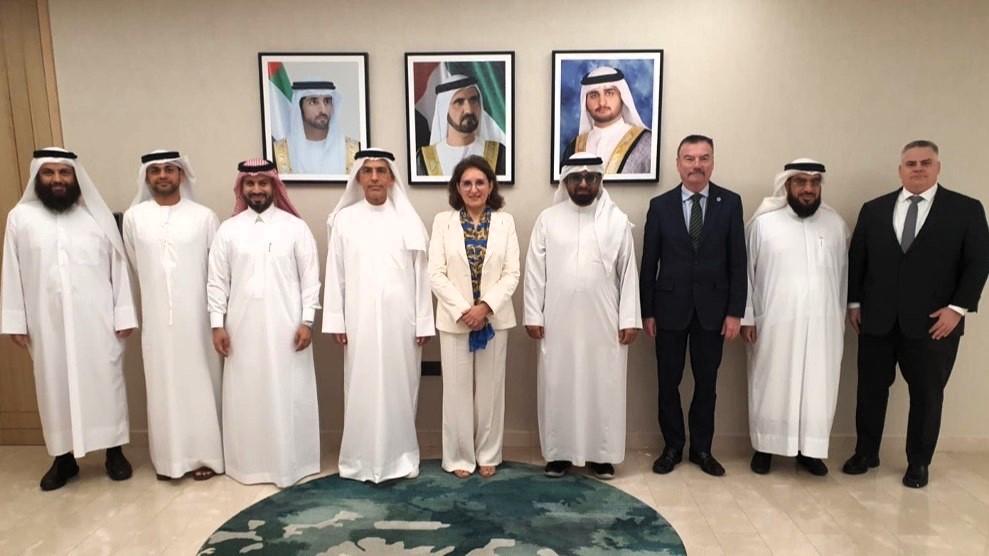IPSASB Issues Draft of Groundbreaking Climate-related Disclosures Standard for the Public Sector
Climate change affects everyone, transcending borders and economic boundaries. Rapid progress to mitigate climate change requires public sector action, and effective action requires the quality information only sustainability reporting standards specific to the sector’s needs can provide.
To meet the public sector’s unique reporting needs, the International Public Sector Accounting Standards Board® (IPSASB®) is developing the world’s first climate-related disclosure standard for governments around the world, with support from The World Bank. The draft of this inaugural Sustainability Reporting Standard (IPSASB SRS TM) is being issued today for public comment.
Ian Carruthers, IPSASB Chair, said: "The rapid progress needed to address climate change requires public sector action. The scale of the investment involved and the need for coordinated action across all sectors of the economy mean that only governments are equipped to lead the changes required. Using policy tools, such as taxation, regulation, and subsidies, governments can influence behaviors across entire economies.
“Public sector finances are already stretched following the pandemic, so while stronger public financial management can release some of the resources required, the capital markets will need to fill the gap. With sovereign bonds already making up almost 40% of the $100 trillion global bond market in 2022, IPSASB’s proposed standard on climate-related disclosures will be help governments provide consistent, comparable, and verifiable information and will ultimately help them maintain access to capital markets.”
To promote global consistency and comparability, IPSASB SRS ED 1, Climate-related Disclosures proposes public sector specific guidance which builds on the International Sustainability Standards Board (ISSB) global baseline. In doing so, IPSASB SRS ED 1 proposes principles for the more limited group of public sector entities that have responsibility for climate-related public policy programs and their outcomes.
Sue Lloyd, ISSB Vice-Chair, said: "The public sector is a major component of global capital markets so ensuring public sector organisations disclose high quality, comparable sustainability information is important to meet the information needs of investors. By building on the ISSB’s global baseline ꟷ which is being adopted by jurisdictions around the world ꟷ IPSASB is bringing the public sector into the global sustainability reporting ecosystem. Consistency in disclosure requirements will help support comparability across sectors and is essential to driving an efficient corporate reporting system, reducing complexity and fragmentation that could undermine the usefulness of sustainability information in investor decision-making.”
The IPSASB urges public sector stakeholders, including preparers of public sector climate-related and other sustainability reports, regional and national sustainability reporting standard setters, professional accountants, sustainability assurance providers, and interested members of the public including indigenous peoples to share their comments on the proposed standard and other matters raised in IPSASB SRS ED 1 by February 28, 2025. Feedback received on IPSASB SRS ED 1 will shape the final standard which will assist governments and other public sectors around the world in being accountable for their actions to address climate change.
To discuss the proposals outlined in the draft standard, the importance of public sector leadership in climate reporting, and how the standard aligns with global sustainability efforts, the IPSASB is hosting an online launch event for IPSASB SRS ED 1 featuring an insightful discussion between Ian Carruthers, IPSASB Chair, Sue Lloyd, Vice-Chair of the International Sustainability Standards Board (ISSB), and Lee White, Chief Executive Officer of IFAC, moderated by Owen Mapley, Chief Executive Officer of CIPFA. Register here to join virtually on November 13, 14:00 UTC.
How to Access
Access the IPSASB SRS ED 1, Climate-related Disclosures, its summary At-a-Glance document, and submit a comment. Comments on the Exposure Draft are requested by February 28, 2025. The IPSASB encourages IFAC members, associates, and Network Partners to promote the availability of this Exposure Draft to their members and employees.
About the IPSASB
The International Public Sector Accounting Standards Board (IPSASB) works to strengthen public financial management globally through developing and maintaining accrual-based International Public Sector Accounting Standards® (IPSAS®), IPSASB Sustainability Reporting Standards™ (IPSASB SRS™) and other high-quality financial reporting guidance for use by governments and other public sector entities. It also raises awareness of IPSAS and IPSASB SRS and promotes the adoption and implementation of these to enhance the quality and consistency of practice throughout the world and strengthen the transparency and accountability of public sector finances and sustainable development. The Board receives support from the Asian Development Bank, the Chartered Professional Accountants of Canada, the New Zealand External Reporting Board, the government of Canada, and The World Bank. The structures and processes that support the operations of the IPSASB are facilitated by the International Federation of Accountants (IFAC). For copyright, trademark, and permissions information, please go to permissions or contact permissions@ifac.org.
Feedback on the inaugural IPSASB SRS draft will shape the final standard enabling governments around the world to be accountable for their actions to address climate change

